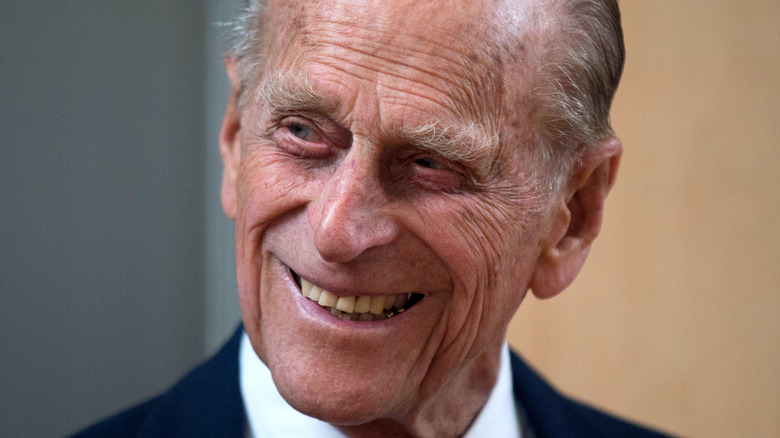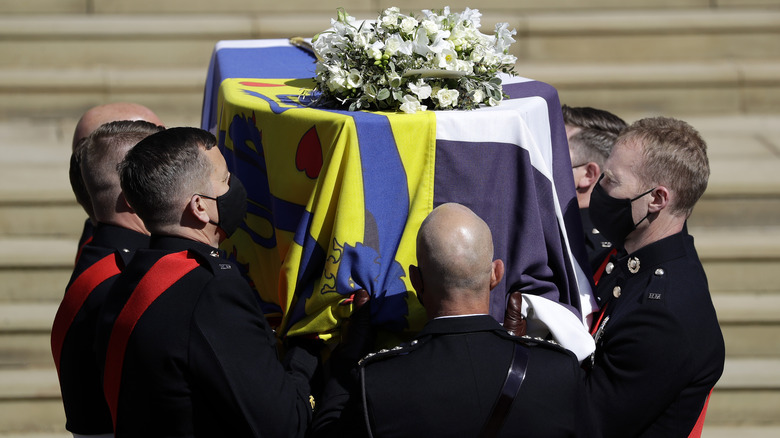Why Prince Philip's Will Is Going To Be Kept Sealed And Secret
On April 9, 2021, Buckingham Palace announced the death of the Duke of Edinburgh, who died at the age of 99 at Windsor castle (via The Guardian).
A palace statement released at the time confirming the senior royal's death read, "It is with deep sorrow that Her Majesty The Queen announces the death of her beloved husband, His Royal Highness The Prince Philip, Duke of Edinburgh. His Royal Highness passed away peacefully this morning at Windsor Castle. Further announcements will made in due course. The Royal Family join with people around the world in mourning his loss."
According to CNN, the funeral of Prince Philip took place at St. George's Chapel in Windsor Castle on Saturday, April 17, 2021, and was attended by the majority of the royal family, including his children the Prince of Wales, Princess Royal, the Earl of Wessex, and the Duke of York.
Five months after his funeral, details surrounding the Duke of Edinburgh's will were revealed, and it was announced that the late royal's will is going to be kept sealed and secret.
Why is Prince Philip's will being kept a secret?
According to the BBC, the High Court has ruled that Prince Philip's will is going to remain a secret for at least 90 years in order to protect the "dignity and standing" of her majesty the Queen. The decision to seal the will was overseen by one of the United Kingdom's most senior judges in the family courts, Sir Andrew McFarlane. In 90 years' time, the decision of whether or not to unseal it will be decided in private.
"I have held that, because of the constitutional position of the Sovereign, it is appropriate to have a special practice in relation to royal wills," McFarlane said in a statement, adding, "There is a need to enhance the protection afforded to truly private aspects of the lives of this limited group of individuals in order to maintain the dignity of the Sovereign and close members of her family."
Over the past century, it has been standard practice that the courts are asked to seal the wills of royal family members following their deaths, which ensures that royal wills are not open to public scrutiny.

